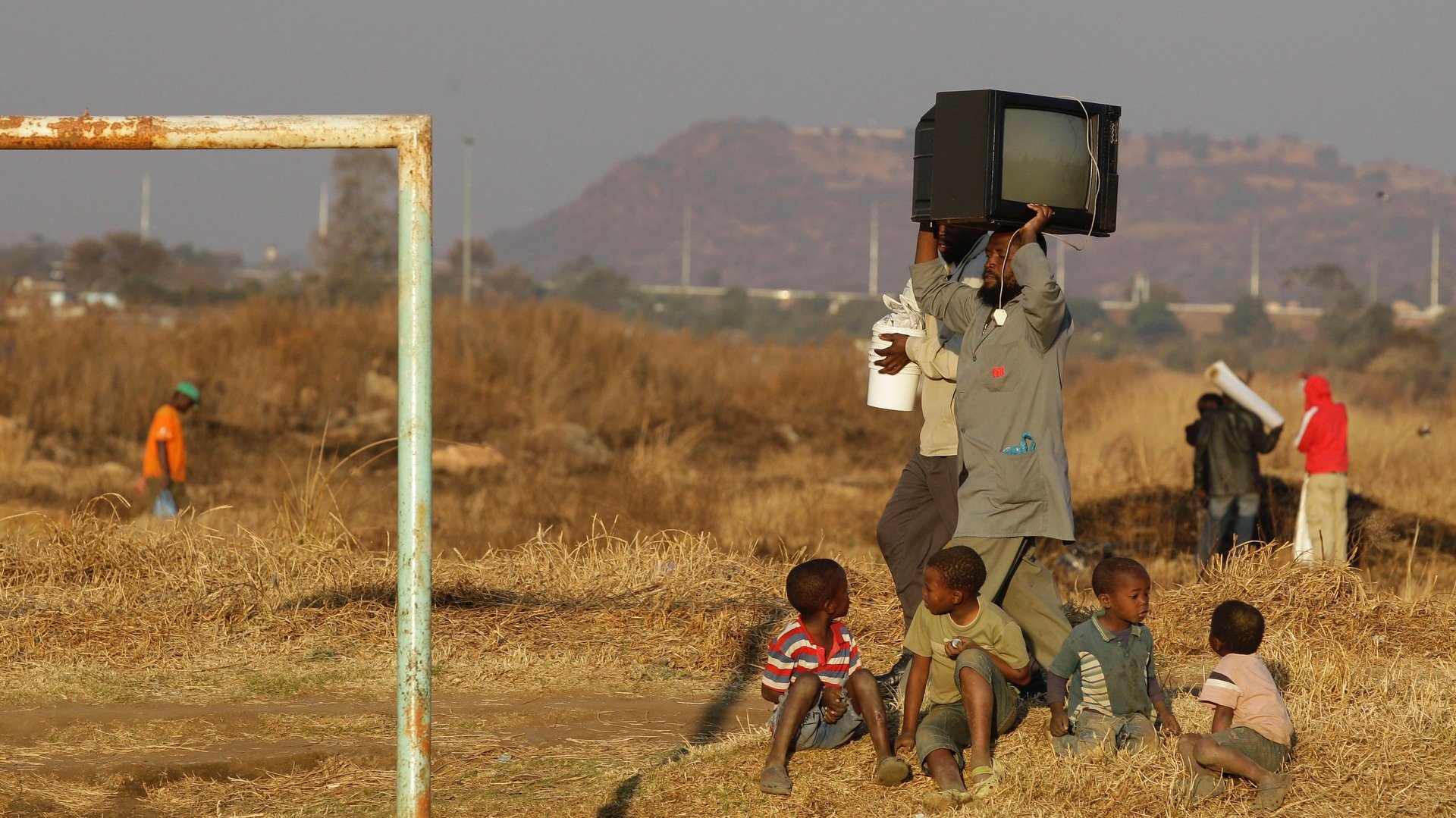South Africa’s public broadcaster will only allow news that makes the president look good
Jacob Zuma is a man surrounded by scandal, but you wouldn’t know that from watching the South African Broadcasting Corporation (SABC). The public broadcaster will no longer air any negative coverage of the president, according to local newspaper City Press, which quoted an SABC source saying Zuma “deserves a certain degree of respect as president of the country.”


Jacob Zuma is a man surrounded by scandal, but you wouldn’t know that from watching the South African Broadcasting Corporation (SABC). The public broadcaster will no longer air any negative coverage of the president, according to local newspaper City Press, which quoted an SABC source saying Zuma “deserves a certain degree of respect as president of the country.”
It’s the latest in a series of troubling moves by South Africa’s main broadcaster, led by chief operating officer Hlaudi Motsoeneng. The flamboyant COO—who says he doesn’t believe in science—has imposed increasingly Orwellian and sometimes bizarre editorial rules, including banning reports of violent protests.
Last week, when the capital city was gripped by fiery demonstrations over the upcoming election and rights groups protested outside SABC offices against changes at the broadcaster itself, Motsoeneng did not budge. Journalists who questioned him were suspended, while others penned a public letter expressing fear that the SABC is turning back into the propaganda machine it was during apartheid from the 1970s to the early 1990s.
“I am Hlaudi Motsoeneng, baby! I am in charge,” Motsoeneng said in May about his controversial policies. “Nobody will go against what I have put in place.”
On Monday (June 27) veteran journalist and acting SABC CEO Jimi Matthews quit.“What is happening at the SABC is wrong and I can no longer be a part of it,” he wrote in his resignation letter. Matthews also apologized for his own part in the decisions that have slowly eroded public trust in the SABC. On Tuesday (June 28), Matthews was replaced by Ugandan auditor, James Aguma, previously the acting CFO at SABC. Many see his appointment as more of the same.
Modeled on the BBC, with three free-to-air channels, a 24-hour news channel and 18 radio stations, the SABC is in nearly every South African home, and is beamed to some neighboring countries. An investigative report by the Afrikaans-language newspaper Rapport this week revealed that within its tower overlooking Johannesburg, the SABC’s inner workings have come to resemble satire.
A source within the SABC told Rapport:
“Then came the requirement that at least 80% of news coverage had to be positive. That raised a few eyebrows, but we knew there were big problems when Hlaudi suddenly banned coverage of violent protests. That’s when the stories we covered started changing completely. Municipal and political stories slowly but surely began disappearing and the focus shifted to covering ceremonies rather than issues.”
“I saw with my own eyes how visuals of the stadium emptying out during the president’s Youth Day address were cut out,” another journalist told Rapport. “And all of it in the name of nation building.”
Motsoeneng also reportedly ordered that all camera operators be retrained because their camera angles “make [Zuma] look shorter,” the newspaper reported. An SABC spokesman defended the order to Rapport, saying that quality footage had to be a “true reflection” of the man in front of the camera.
Motsoeneng first courted controversy in 2014 when South African state watchdog, the Public Protector, found that he didn’t have a high school diploma and had abused his power as head of the SABC by inspecting male anchors’ outfits and interfering in editorial content. Unfazed by the damning report and ensuing bid to remove him, in the 2014/2015 financial year Motsoeneng increased his own salary by a million rand (around $65,000) and awarded himself a bonus of nearly 300,000 rand (nearly $20,000), even as the SABC struggled, kept afloat by state funding and TV licenses.
“Some leaders are born. Like myself, I am a born leader, so you can’t take that away from me,” Motsoeneng said during the ongoing court battle to have him removed by the opposition party and rights groups. He is reportedly considering imposing an SABC uniform to promote internal unity.
Motsoeneng continues to enjoy the backing of the SABC board and the government’s ruling party.
The SABC could not be reached for comment.